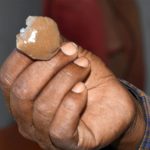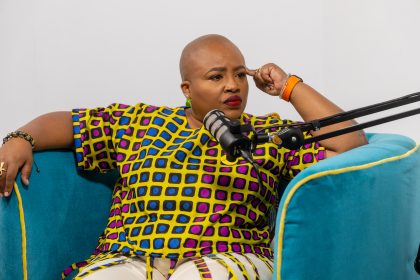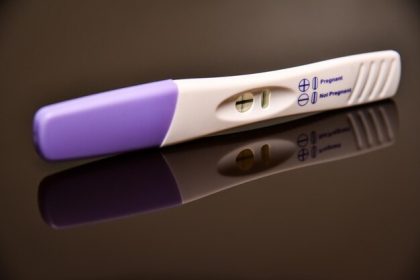Hormonal contraceptives don’t cause insomnia, obesity, hypertension, endometriosis, infertility, fibroids or cancer
By Robert Amalemba
Majority of young people who can hardly differentiate fact from fiction on social media platforms are most vulnerable to misinformation, disinformation and health-related propaganda and scaremongering.
That most young people, especially in Kenya, rely on digital platforms for news and information sees most social media posts gain traction and going viral, thus aggravating the situation.
Take local blogger Lewis Muchile.
On March 19, 2024, Muchile shared a Facebook post on hormonal contraceptives and listed the following as side effects on women: insomnia, weight gain, obesity, hypertension, estrogen dominance, PCOS (Polycystic ovary syndrome), endometriosis, infertility, fibroids, cancer and depression, and warned “It comes out as fun for now, but 7-10 years from now you will remember this post.”
The post, laden with a cocktail of unsubstantiated claims and fear mongering, quickly spread like wildfire across social media.
Yet, Muchile is not alone.
In March 2023, Maneesha Sem tweeted that “Hormonal birth control suppresses the cycle of a woman…so much that they become unaware of their body’s natural waves. This makes it easier for her to operate like a man steadily through the month.”
Even further back, in February 2019, Akinbosola Ogunsanya shared on X how he was “Never gonna let my girl take these birth control pills. The side effects are terrible and mess up the menstrual cycle…if you can’t pull out, then wear a condom.”
The common thread in these posts is the spread of half-truths or outright falsehoods and blanket doom for women who use contraceptives. Yet, the World Health Organization (WHO) says contemporary contraceptives are “well tolerated and effective for the majority of women.”
WHO advises that for effectiveness and avoidance of harm, medics should base contraceptive provision on scientifically derived medical knowledge as every client is unique to the given contraceptive way.
Medical journals also admit that some women do notice mood changes while on the pill which resemble Premenstrual Syndrome (PMS), which can happen regardless of whether somebody is taking hormonal birth control.
Weight gain is also not a cause of alarm according to Healthline, a renowned health blog reviewed by medics, as it is often the result of water retention, not actual fat gain. “It’s almost always temporary. Given time, this water will go away, and your weight should return to normal,” it says.
Four years ago, Africa Check conducted a survey on False Health Information in Kenya and found that 9.9 million Kenyans use the internet, with 64% (6.3 million) of them being young people aged 15-34. Despite this, digital literacy remains low, leaving many vulnerable to misinformation – which is not unique to Africa or Kenya.
Even in the USA, social media influencers propagate misinformation that contraceptives permanently alter body composition or cause personality, mostly to build their profiles and sell books, as Teen Vogue, a US online publication aimed at teenage girls and young women found out this May.
In Kenya, there are bloggers who do the same as part of clout chasing.
This digital quagmire leaves young people vulnerable to health-related misinformation. But bodies like WHO are working towards combating the growing tide of misinformation.
On March 17, 2023, the WHO African Region used its Facebook page to share facts about use of Dual Protection: Hormonal contraceptives & IUDs (Intrauterine Device), it noted “are highly effective at preventing pregnancy and that the two ‘do not protect against STIs, including HIV.”
Locally, the Reproductive Health Network Kenya (RHNK) is also demystifying misconceptions about contraceptives.
On World Contraception Day (September 26), the RHNK posted a video featuring Nancy Lyyne, one of their healthcare professionals, addressing prevalent myths about contraceptives. Like using contraceptives causes infertility “which is not true” she said. “A common contraceptive method is the pill, and once you stop using it, your fertility is restored.”
She continued to note that “contraceptives do not lead to poor health outcomes” and on the contrary, “they can be beneficial to women seeking to regulate their menstrual cycle.”
Lyyne went on to emphasize that men, too, have a critical role to play in family planning as it isn’t the preserve of women as widely believed.
RHNK is also harnessing the positive power of social media platforms by sharing personal video stories besides hosting sexual and reproductive health experts via Zoom sessions, which widens access to reproductive services and promotes gender equality through leveraging digital tools.
Mary Makokha, Director of the Rural Education and Economic Enhancement Programme (REEP), points out many young people rely on social media for quick answers, often without avenues to verify the accuracy of the information.
“If left unchecked, misinformation and disinformation on sensitive topics like contraceptives can have serious consequences for our youth like making them shun contraceptives or use the wrong ones for lack of information,” Makokha warns. “By the time you counter a myth, the damage may already be done. This calls for guardians to be vigilant in guiding teens on which sites to visit for factual reproductive health on social media.”
Long serving nurse and part time lecturer, Philip Soita, says he “encountered numerous teens who come to medical facilities with loads of misconceptions like who should use contraceptives, when to start and when to stop, mostly picked from social media influencers” he says. “While there’s little data to measure the full impact, the sheer number of teens misled by falsehoods is alarming. You have to first dispel the misinformation before even discussing the appropriate contraceptive method.”
Soita, who worked in Nakuru, Kakamega, and Todonyang explains that many hospitals in Kenya now have youth-friendly centres where adolescents can access counseling and accurate information about reproductive health and related topics for free. This helps prevent not only unplanned pregnancies, but also sexually transmitted infections like HIV.
Kenya adopted the 1994 International Conference on Population and Development’s action plan, which urged governments to make reproductive health services available to young people. However, the implementation has been patchy, leaving many adolescents without the necessary access to sexual and reproductive health information and support.
According to a July 2024 study, a significant gap exists in Kenya’s digital tools designed to promote accurate reproductive health knowledge. The study, which focused on the We!Masomo Digital Sexual Health Education Web Application in Sub-Saharan Africa, emphasized the need for such tools in countries like Kenya, where comprehensive sex education is absent from the national school curriculum.
“The lack of structured, verified, and reliable sexual health information—particularly about contraception, menstruation, and female genital mutilation—leaves young women vulnerable to serious health risks,” the study reports. “Religious, tribal, and social affiliations often suppress or distort discussions on sexual health.”
Additionally, high youth unemployment has driven some to exploit Kenya’s growing connectivity, leading to profit-driven health scams. The lack of access to quality healthcare also makes Kenyans particularly susceptible to unproven cures circulating on social networks.
Cultural factors further compound this, with community leaders and authority figures often influencing the spread of false health information.
Despite the overwhelming presence of misinformation, there are glimmers of hope. The July 2024 research also found that mass media, digital platforms, apps and online forums are powerful tools for reaching and educating young people about sexual health.
Apps like We!Masomo are trying to fill the void complete with an AI assistant that responds in real time to a variety of reproductive health topics and questions on contraception, menstruation and prevention of sexually transmitted infections (STIs), in an environment that encourages openness and inquiry- especially for many adolescents who may feel uncomfortable seeking help from traditional healthcare providers due to societal stigmas.
One young user, Irene*, said she felt uncomfortable asking her teacher or parents about periods or contraception, but the app “helped me understand what contraceptive options are available, their side effects, and which ones might be best for me.”
Soita says there is a clear need to expand access to both digital and in-person reproductive health education besides Kenya creating a network of verified, youth-friendly reproductive health services—both online and offline. This will shield young people from harmful misinformation and empower informed reproductive health choices, helping the country tackle the digital misinformation challenge.
Another user, John Munyendo says that she relies on postings from the WHO social media posts to guide his contraceptive use: “I know reproductive health matters are health matters and I won’t rely on anyone to give me advice.”





















